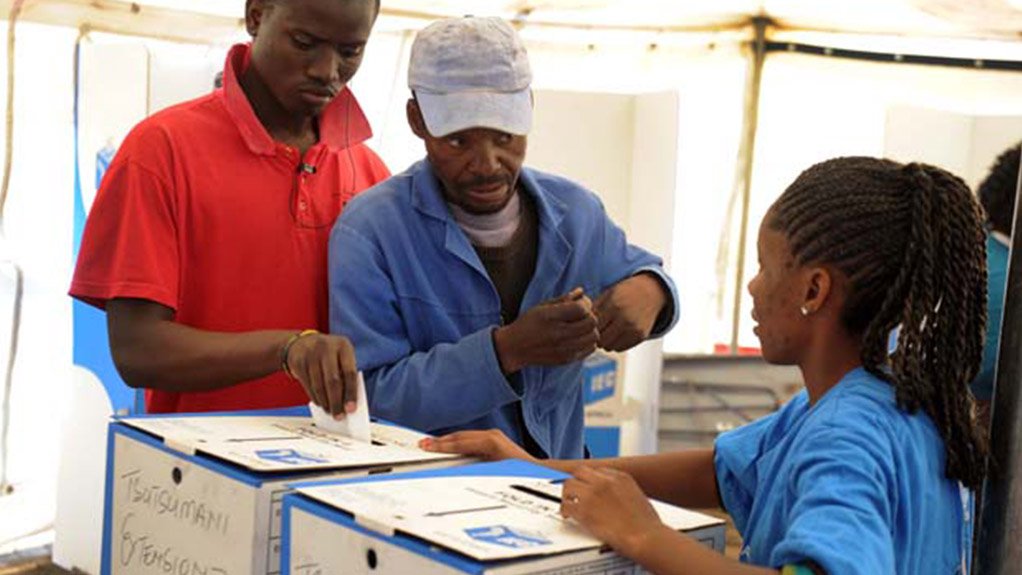With less than a month to go until the August 3 local government elections, here is everything you need to know about what you are permitted and not permitted to do inside a voting station.
When you enter the voting station after leaving the queue you will start at the voters roll check point where you have to produce your valid South African identity book in the form of a green ID book, a smartcard ID or a valid temporary ID certificate.
After producing your ID, the Electoral Commission of South Africa [IEC] official will scan it to check if you are registered at the correct voting station and that your name appears on the voters' roll.
If your name appears on the voters' roll, it will be crossed off the list.
If your name does not appear on the voters roll and you have a barcoded sticker on your ID that you received when you applied to register, then you will be required to fill in an MEC 7 form and you will then be allowed to continue to vote.
After the voters' roll checkpoint comes the turnout monitor where an IEC official will record the number of people that cast their vote at the voting station on August 3.
Three types of ballot papers
This will be followed by the inking station where the IEC official will mark your left hand thumb nail with indelible ink to show that you would have voted.
At the next station you will be issued with ballot papers.
There are three different types of ballot papers. People living in a metro, will receive two ballot papers and people living outside of a metro (in local municipalities) will receive three ballot papers.
The ward ballot paper is the first ballot paper and can be identified by its grey and white background. It will have a list of names of candidates contesting a ward seat in the council.
If the candidate is representing a political party, the candidate's name will be followed by the party logo and if the candidate is independent, the name will be followed by a head and shoulders photograph and the letters "IND".
The second is the council PR ballot paper, which has a yellow background.
Ballots stamped
All political parties contesting seats in that council will appear on this ballot paper.
Councillors will be appointed from the official list of candidates submitted in accordance with the relative number of votes the party receives.
The third ballot paper is the district count PR ballot paper and has a green background.
Every voter living outside a metro will receive a district count PR ballot paper.
Councillors will be elected to the district council in accordance with the prescribed procedures, based on the voting results and the party list.
The ballots will be stamped by a voting station official to validate them and thereafter you can proceed to the ballot booth where you can select the preferred party or candidate you are voting for in private.
Cancelled ballots
If you make a mistake or change your mind about the candidate or party, you are allowed to ask a election official for a new unmarked ballot paper, but this should be done before placing the paper inside the ballot box.
The incorrect ballot will be cancelled and kept separately. You are only permitted to ask for a new ballot two times.
After selecting your preferred party or candidate, you can proceed to insert the marked ballot papers into the ballot box, situated next to the ballot booth.
Inside the voting station there will be a presiding officer and their deputy presiding officer, the pair are responsible for coordinating and supervising the voting at the voting station to make sure that the voting is free and fair.
Inside the voting station there will also be observers who will observe that the process goes accordingly.
Observers are independent local and international election observers, at the end of the election they are expected to compile a report declaring whether the elections were free and fair or not.
Assisting voters
Observers are accredited by the commission, however they are not accountable to it.
If you see something amiss, you can report it to the presiding officers, and if you suspect a party or candidate has broken the law, you can report them to the police.
According to the section 39 of the Electoral Act a voting official at the request of the voter who is unable to read must assist that voter in the presence of an observer and two agents from different parties, if available.
The Act states that a person can assist a voter in voting if the voter is physically disabled, including blind and visually impaired. Voters can also be helped if they request assistance.
The presiding officer needs to ensure that the person that is helping a voter is over the age of 18, not an agent or candidate.
EMAIL THIS ARTICLE SAVE THIS ARTICLE
To subscribe email subscriptions@creamermedia.co.za or click here
To advertise email advertising@creamermedia.co.za or click here











